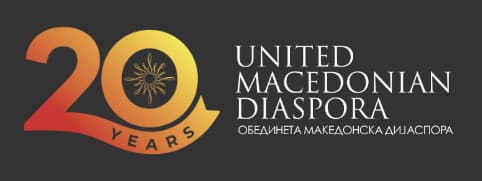Imagine men with guns coming to your village when you were only a child, your parents taken away and you sent to another country alone without them.
Imagine the government classifies your family as an illegal type of people and all your lands are confiscated.
Imagine your language was outlawed and speaking it was severely punished by the police.
Imagine one official state religion, with priests sent to your village by the state to enforce a political ideology of hate.
Imagine that priest forbids you from choosing your own child’s name.
Imagine the graves of your ancestors being destroyed, the ancient icons in your church removed or painted over.
That is the true untold history of Aegean Macedonia.
Those who encounter the naming dispute for the first time hardly know what to make of it, they can’t understand why modern-day Athenians are so hateful towards Macedonia.
They’re told it has something to do with ancient history, but it doesn’t make any sense, the reason it doesn’t make sense is because it’s not an international dispute; it’s just framed like that on tv.
This is a domestic dispute within Greece, like a family secret that everyone knows but isn’t allowed to talk about.
And yes, it’s about history but it’s the history of the 20th century, not the history of ancient times.
The naming dispute is about land that land is called Aegean Macedonia; it was annexed by Greece in 1913 for the first time in world history.
Today it remains the breadbasket of the Athenian economy.
Above all else this territory is a crime scene, that’s the real truth.
A crime was committed there, and the perpetrators have never been punished, and the victims have never seen justice.
The naming dispute is about Athens hiding the evidence of the most heinous crime that western people have never heard about, that crime is the brutal ethnic cleansing and cultural genocide of Aegean Macedonia and the genocide continues today.
Between 1918 and 1928, 805 towns and villages were renamed in Aegean Macedonia, in 1927 all Macedonian given names and surnames were hellenized, so Gjorgji had to become a Yiorgos and a Popoff had to become a Papadopoulos, by the 1930s inscriptions of public buildings were changed to Greek, while books and documents were burned, many cemeteries were bulldozed, while in others tombstones were replaced.
The Macedonians would live under a police state, if they dared to express unapproved thoughts or use an unapproved language they were regularly beaten or imprisoned; some were sent to concentration camps on islands like Makronisos where they were sadistically tortured.
By 1948 the Deca Begalci were taken away from their families and exiled, 44 000 helpless Macedonian children; their citizenships were revoked, and many would never see their parents again.
By the 1950s Athens and NATO had decided that everyone would be Greek for now on, even the words Macedonia and Macedonian were forbidden.
It wasn’t until 1988 when Greece could sense the fall of Yugoslavia that Athens switched their strategy, for the first time they allowed the name Macedonia instead of northern Greece; but their Greco-Macedonia was a political not a historical concept.
Modern Greece is a mix of peoples from very different ethnic backgrounds, many of those claiming to be Greco-Macedonians actually originate in Albania or Turkey and their great-grandparents spoke Albanian or Turkish; some do have indigenous Macedonian heritage but since many have been raised as Greeks, they’ve been taught to hate their own people and to treat them as an enemy.
Today Greece is 10 times the size of the Republic of Macedonia and a member of NATO and the EU, the Macedonian army has 8 000 active personnel whereas the Greek army has 134 000, even former Prime Minister Samaras admitted on national television that claims of a military threat from the north are just a charade.
However, Greece does face a kind of danger a danger from within, Greece is in danger of being consumed by its own greed, its own corruption, its own xenophobia, its own fascist culture, the Greek economy is on the brink of bankruptcy and its people have been trained from a young age to blame the other for all of their problems.
If Greece ever recognized Macedonians including those who live outside of Greece, they would need to recognize land claims as well, they would need to make reparations, they would need to build monuments to commemorate the atrocities that happened on that land, they would need to admit that their national ideology is a mythology.
That’s why the Republic of Macedonia must never change its national name.
Da Zhivee Makedonija.
Any opinions or views expressed in articles or other pieces appearing in UMD Voice are those of the author alone and are not necessarily those of the United Macedonian Diaspora and its young leaders’ program Generation M; the appearance of any such opinions or views in UMD Voice is not and should not be considered to be an endorsement by or approval of the same by UMD and Generation M.




